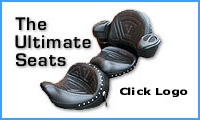Definitions:
§ 120.6 -- Defense article.
Defense article means any item or technical data designated in § 121.1 of this subchapter. The policy described in § 120.3 is applicable to designations of additional items. This term includes technical data recorded or stored in any physical form, models, mockups or other items that reveal technical data directly relating to items designated in § 121.1 of this subchapter. It does not include basic marketing information on function or purpose or general system descriptions.
§ 121.9 -- Firearms.
Category I-Firearms
*(a) Nonautomatic, semi-automatic and fully automatic firearms to caliber .50 inclusive, and all components and parts for such firearms. (See § 121.9 and §§ 123.16-123.19 of this subchapter.)
(b) Riflescopes manufactured to military specifications, and specifically designed or modified components therefor; firearm silencers and suppressors, including flash suppressors.
*(c) Insurgency-counterinsurgency type firearms or other weapons having a special military application (e.g. close assault weapons systems) regardless of caliber and all components and parts therefor.
(d) Technical data (as defined in § 120.21 of this subchapter) and defense services (as defined in § 120.8 of this subchapter) directly related to the defense articles enumerated in paragraphs (a) through (c) of this category. (See § 125.4 of this subchapter for exemptions.) Technical data directly related to the manufacture or production of any defense articles enumerated elsewhere in this category that are designated as Significant Military Equipment (SME) shall itself be designated SME.
§ 123.16 -- Exemptions of general applicability.
(a) The following exemptions apply to exports of unclassified defense articles for which no approval is needed from the Office of Defense Trade Controls. These exemptions do not apply to: Proscribed destinations under § 126.1 of this subchapter; exports for which Congressional notification is required; MTCR articles; and may not be used by persons who are generally ineligible as described in § 120.1(c) of this subchapter. All shipments of defense articles, including those to and from Canada, require a Shippers Export Declaration (SED). If the defense article is exempt from licensing, the SED must cite the exemption. Refer to § 123.22(c) for Shipper's Export Declaration requirements.
(b) The following exports are exempt from the licensing requirements of this subchapter.
(1) District Directors of Customs shall permit the export without a license of defense articles being exported in furtherance of an approved manufacturing license agreement, technical assistance agreement or distribution agreement provided that:
(i) The defense articles to be exported support the activity and must be identified by item, quantity and value in the agreement; and
(ii) Any provisos or limitations placed on the authorized agreement are adhered to; and
(iii) The exporter certifies on the Shipper's Export Declaration that the export is exempt from the licensing requirements of this subchapter. This is done by writing, "22 CFR 123.16(b)(1) and AG [identify agreement number] applicable and
(iv) The total value of all shipments does not exceed the value authorized in the agreement.
(v) In the case of distribution agreements, export must be made directly to the approved foreign distributor.
(2) District Directors of Customs shall permit the export of components or spare parts (for exemptions for firearms and ammunition see § 123.17) without a license when the total value does not exceed $ 500 in a single transaction and:
(i) The components or spare parts are being exported to support a defense article previously authorized for export; and
(ii) The spare parts or components are not going to a distributor, but to a previously approved end-user of the defense articles; and
(iii) The spare parts or components are not to be used to enhance the capability of the defense article;
(iv) exporters shall not split orders so as not to exceed the dollar value of this exemption;
(v) the exporter may not make more than 24 shipments per calender year to the previously authorized end user;
(vi) The exporter must certify on the Shipper's Export Declaration that the export is exempt from the licensing requirements of this subchapter. This is done by writing 22 CFR 123.16(b)(2) applicable.
(3) District Directors of Customs shall permit the export without a license, of packing cases specially designed to carry defense articles.
(4) District Directors of Customs shall permit the export without a license, of unclassified models or mock-ups of defense articles, provided that such models or mock-ups are nonoperable and do not reveal any technical data in excess of that which is exempted from the licensing requirements of § 125.4(b) of this subchapter and do not contain components covered by the U.S. Munitions List (see § 120.6(b) of this subchapter). Some models or mockups built to scale or constructed of original materials can reveal technical data. U.S. persons who avail themselves of this exemption must provide a written certification to the District Director of Customs that these conditions are met. This exemption does not imply that the Office of Defense Trade Controls will approve the export of any defense articles for which models or mocks-ups have been exported pursuant to this exemption.
(5) District Directors of Customs shall permit the temporary export without a license of unclassified defense articles to any public exhibition, trade show, air show or related event if that article has previously been licensed for a public exhibition, trade show, air show or related event and the license is still valid. U.S. persons who avail themselves of this exemption must provide a written certification to the District Director of Customs that these conditions are met.
(6) For exemptions for firearms and ammunition for personal use refer to § 123.17.
(7) For exemptions for firearms for personal use of members of the U.S. Armed Forces and civilian employees see § 123.18.
(

For exports to Canada refer to § 126.5 of this subchapter.
(9) District Directors of Customs shall permit the temporary export without a license by a U.S. person of any unclassified component, part, tool or test equipment to a subsidiary, affiliate or facility owned or controlled by the U.S. person (see § 122.2(c) of this subchapter) if the component, part, tool or test equipment is to be used for manufacture, assembly, testing, production, or modification provided:
(i) The U.S. person is registered with the Office of Defense Trade Controls and complies with all requirements set forth in part 122 of this subchapter;
(ii) No defense article exported under this exemption may be sold or transferred without the appropriate license or other approval from the Office of Defense Trade Controls.
§ 123.17 -- Exports of firearms and ammunition.
(a) Except as provided in § 126.1 of this subchapter, District Directors of Customs shall permit the export without a license of components and parts for Category I(a) firearms, except barrels, cylinders, receivers (frames) or complete breach mechanisms when the total value does not exceed $ 500 wholesale in any transaction.
(b) District Directors of Customs shall permit the export without a license of nonautomatic firearms covered by Category I(a) of § 121.1 of this subchapter if they were manufactured in or before 1898, or are replicas of such firearms.
(c) District Directors of Customs shall permit U.S. persons to export temporarily from the United States without a license not more than three nonautomatic firearms in Category I(a) of § 121.1 of this subchapter and not more than 1,000 cartridges therefor, provided that:
(1) A declaration by the U.S. person and an inspection by a customs officer is made;
(2) The firearms and accompanying ammunition must be with the U.S. person's baggage or effects, whether accompanied or unaccompanied (but not mailed); and
(3) They must be for that person's exclusive use and not for reexport or other transfer of ownership. The foregoing exemption is not applicable to a crew-member of a vessel or aircraft unless the crew-member declares the firearms to a Customs officer upon each departure from the United States, and declares that it is his or her intention to return the article(s) on each return to the United States. It is also not applicable to the personnel referred to in § 123.18.
(d) District Directors of Customs shall permit a foreign person to export without a license such firearms in Category I(a) of § 121.1 of this subchapter and ammunition therefor as the foreign person brought into the United States under the provisions of 27 CFR 178.115(d). (The latter provision specifically excludes from the definition of importation the bringing into the United States of firearms and ammunition by certain foreign persons for specified purposes).
(e) District Directors of Customs shall permit U.S. persons to export without a license ammunition for nonautomatic firearms referred to in paragraph (a) of this section if the quantity does not exceed 1,000 cartridges (or rounds) in any shipment. The ammunition must also be for personal use and not for resale or other transfer of ownership. The foregoing exemption is also not applicable to the personnel referred to in § 123.18.
§ 123.18 -- Firearms for personal use of members of the U.S. Armed Forces and civilian employees of the U.S. Government.
The following exemptions apply to members of the U.S. Armed Forces and civilian employees of the U.S. Government who are U.S. persons (both referred to herein as personnel). The exemptions apply only to such personnel if they are assigned abroad for extended duty. These exemptions do not apply to dependents.
(a) Firearms. District Directors of Customs shall permit nonautomatic firearms in Category I(a) of § 121.1 of this subchapter and parts therefor to be exported, except by mail, from the United States without a license if:
(1) They are consigned to servicemen's clubs abroad for uniformed members of the U.S. Armed Forces; or,
(2) In the case of a uniformed member of the U.S. Armed Forces or a civilian employee of the Department of Defense, they are for personal use and not for resale or other transfer of ownership, and if the firearms are accompanied by a written authorization from the commanding officer concerned; or
(3) In the case of other U.S. Government employees, they are for personal use and not for resale or other transfer of ownership, and the Chief of the U.S. Diplomatic Mission or his designee in the country of destination has approved in writing to Department of State the import of the specific types and quantities of firearms into that country. The exporter shall provide a copy of this written statement to the District Director of Customs.
(b) Ammunition. District Directors of Customs shall permit not more than 1,000 cartridges (or rounds) of ammunition for the firearms referred to in paragraph (a) of this section to be exported (but not mailed) from the United States without a license when the firearms are on the person of the owner or with his baggage or effects, whether accompanied or unaccompanied (but not mailed).
§ 123.19 -- Canadian and Mexican border shipments.
A shipment originating in Canada or Mexico which incidentally transits the United States en route to a delivery point in the same country that originated the shipment is exempt from the requirement for an in transit license.
§ 123.20 -- Nuclear materials.
(a) The provisions of this subchapter do not apply to persons living in Franklin County, Kentucky owning, building, exporting, or using weapons containing any form of Nuclear materials.






